From Floppy Swaps to Cross-Platform Power: My Journey to Lazarus FPC 🚀
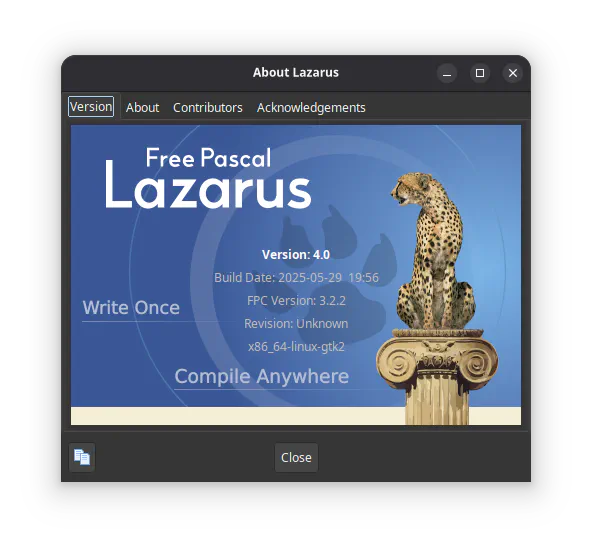
Hey everyone! Today, I want to share a bit about my programming journey and introduce you to a fantastic, often overlooked tool that’s been a consistent companion through the years: Lazarus Free Pascal.
My story in (real) coding began, like many in the late 80s and early 90s, with the legendary Turbo C. I remember the thrill of typing out code in that stark blue text-mode editor, and the satisfaction of seeing my C programs compile. But there was a challenge, especially with my trusty one-floppy 8088 PC, an Olivetti Prodest PC 1. Compiling anything beyond the simplest applications meant a constant dance of swapping floppy disks – one for the compiler, another for the libraries, then back again. It was a tedious, but character-building, experience!
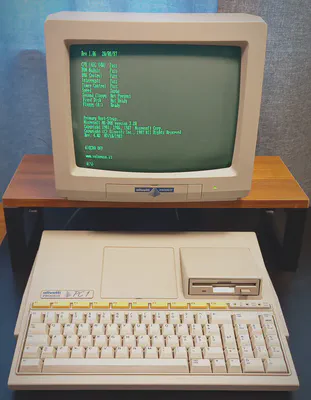
That’s when I discovered Turbo Pascal. Its integrated development environment (IDE) was the same with Turbo C without the disk swapping! Everything I needed was right there. The speed and simplicity of Pascal, coupled with the seamless workflow, made it my go-to language. It felt like magic after the floppy shuffle of C.
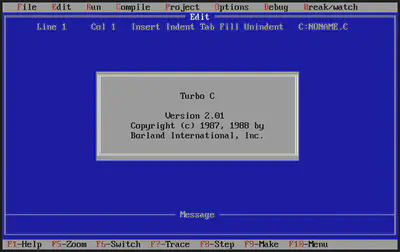
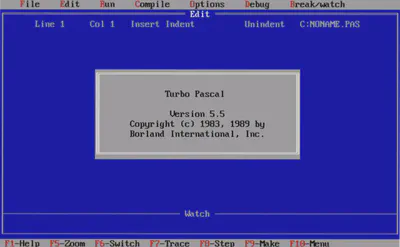
Several years were spent gaming and programming on an Amiga 500 with Lattice C and Kick Pascal, battling tight memory limits, quirky toolchains, and constant floppy swaps to learn the ins and outs of building small projects for AmigaDOS.
Fast forward to the 2000s, and the Windows era. Borland continued to be a major player with Borland Delphi and C++Builder. Delphi, with its visual component library (VCL) and rapid application development (RAD) capabilities, was a game-changer for Windows GUI programming. Building sophisticated applications with drag-and-drop ease was incredibly empowering. C++Builder offered a similar RAD experience for C++ developers, leveraging the same powerful VCL framework. These tools were at the forefront of Windows development for a long time.
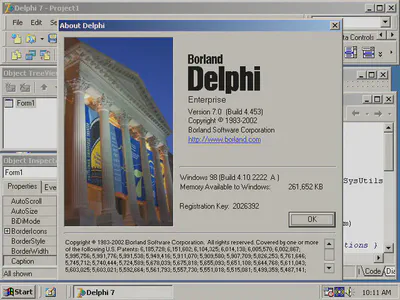
The Resurgence: Lazarus FPC - A Modern Open-Source Powerhouse
Years passed, and while the Borland tools evolved under different ownership, I was thrilled to discover that the spirit of Turbo Pascal and Delphi lives on, stronger than ever, in Lazarus FPC.
Lazarus is an open-source, cross-platform IDE that uses the Free Pascal Compiler (FPC). It’s a testament to the enduring power and flexibility of the Pascal language and the RAD paradigm. What makes Lazarus truly remarkable is its commitment to being Free and Open-Source Software (FOSS), supported by a vibrant and dedicated community.
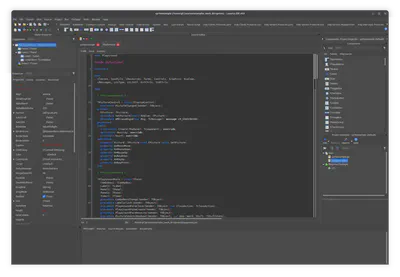
Why Lazarus FPC is a Big Deal
-
Delphi Compatibility: If you’re coming from a Delphi background, Lazarus will feel incredibly familiar. It aims for high compatibility with Delphi’s Object Pascal dialect and its Visual Component Library (VCL), offering a similar component-based, drag-and-drop development experience.
-
Truly Cross-Platform: This is where Lazarus shines! You can develop applications on one operating system and compile them for others with little to no code changes. This means you can create native applications for:
- Windows (32-bit and 64-bit)
- Linux (GTK, Qt)
- macOS
- And even some embedded systems like Raspberry Pi!
This “write once, compile anywhere” philosophy saves an immense amount of time and effort.
-
Native Binaries: Unlike some other cross-platform solutions that rely on virtual machines or runtimes, Lazarus compiles your code into native executables. This results in highly performant applications with a small footprint and no external dependencies.
-
Rich Component Library (LCL): The Lazarus Component Library (LCL) is extensive, providing a wide array of visual and non-visual components for building all sorts of applications, from simple utilities to complex database systems.
-
Active Community and FOSS: Being open-source means Lazarus is constantly evolving, with bug fixes, new features, and a supportive community ready to help. It’s a refreshing contrast to proprietary tools where you might be at the mercy of a single vendor.
Real-World Applications Built with Lazarus FPC
You might be surprised by some of the well-known applications that are built with Lazarus and Free Pascal. Here are just a few examples:
- Double Commander: A popular, open-source, cross-platform file manager with a dual-pane interface, similar to Total Commander. It’s a fantastic example of a robust application built entirely with Lazarus.
- Beyond Compare (macOS and Linux versions): This widely used data comparison utility leverages Lazarus for its macOS and Linux editions.
And many more! The list is constantly growing, check the wiki here, showcasing the power and versatility of Lazarus FPC for various types of software.
My Ongoing Journey
My Pascal/C/C++ programming journey has steadily evolved — from the floppy-swapping days of Turbo C and Turbo Pascal, through the visual RAD era of Delphi and C++Builder, to the open-source, cross-platform power of Lazarus FPC.
If you’re looking for a powerful, flexible, and free alternative for building native applications across different operating systems, I highly recommend giving Lazarus FPC a try. You might just find your new favorite development environment!
Happy coding! ✨